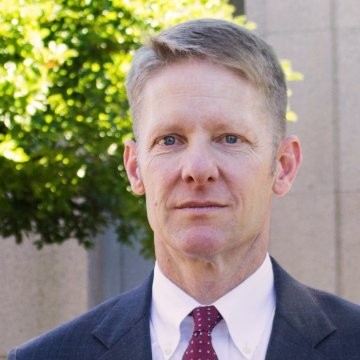By GARRY RAYNO, InDepthNH.org
CONCORD — Final legal arguments in a lawsuit over who has the “power of the purse” were filed late Friday in a court case pitting Democratic lawmakers against Republican Gov. Chris Sununu.
The two sides tread familiar territory in the legal briefs as Solicitor General Daniel Will based most of his argument to allow the governor to spend federal CARES Act money without legislative approval on state statutes, while legislative attorneys Gregory Silverman and Paul Twomey used the state constitution as the basis for their argument.
The case was originally dismissed earlier this year, when a superior court judge ruled lawmakers did not have standing to bring the suit because harm had not occurred, but reconsidered last month saying members of the Joint Legislative Fiscal Committee do have standing.
The lawmakers seek to block Sununu from spending the $1.25 billion in CARES Act money without fiscal committee approval.
When Hillsborough County Superior Court North Judge David Anderson reinstated the case, he asked to hear additional legal arguments on the merits of the case before a final ruling.
Sununu claims a 2002 law gives governors expansive authority in an emergency to accept and spend money as he or she sees fit in order to protect the health and safety of state residents.
He claims governors may accept the federal funds and determine where to spend the money without Fiscal Committee approval, or Executive Council action on individual contracts.
In his filing last week, Will argued “It is apparent from their plain language that RSA 4:45, RSA 4:47, and RSA 21-P:43 were designed to unmoor the Governor from the regular administrative processes that exist during non-emergent times,” Will writes, “so that he may act quickly, decisively, and spontaneously in response to an emergency.”
He goes on to claim that allows the governor to not only to accept the federal money, and spend it where he determines it is needed, but also to transfer already appropriated money among different agencies and budget lines.
Will argues the law cited by lawmakers for the need for legislative approval does not apply because the governor did not seek the federal money and only applies a civil state of emergency not a state of emergency.
“The Fiscal Committee cannot appropriate, and its existence is not established by or referenced in the New Hampshire Constitution,” Will writes. “Rather, it serves solely as a ‘legislative watchdog,’ with the power to review spending, investigate, and audit expenditures.”
He claims lawmakers have “failed to state a claim upon which relief can be granted. None of the statutes the plaintiffs advance control or otherwise restrict or augment the emergency.”
Lawmakers argue the governor’s contention is both illegal and unconstitutional.
They claim the governor’s action violates three provisions of the constitution, including “disbursements from treasury;” “governor, extreme executive magistrate,” and “separation of powers.”
Well-established law makes it clear, the lawmakers argue, that both the state and federal constitutions grant the “power of the purse” to the legislature with its more diverse interests instead of resting the decision on one person.
The attorneys claim the governor’s spending powers have been limited for some time without legislative approval.
“The legislature first granted the governor additional powers during a state of emergency (SOE) – not after the national tragedy of September 11th – but in 1953,” Silverman and Twomey write. “Since then, the language of RSA 4:45, III(e) and RSA 21-P:43 has changed statutory homes, but remained constant.”
The law the governor cites for expanded powers moved the Office of Emergency Management from the governor’s office to the Department of Safety, but did not expand the governor’s authority beyond what had been granted previously.
“Governor Sununu has subjected the state’s fiscal policymaking to his personal prerogatives during this SOE. He first claimed that the serious and unpredictable nature of this pandemic necessitated a unification of separated constitutional powers within himself,” the legislature’s attorneys write. “Since then, he has consistently publicized the benefactors of his personal appropriations, and amplified those who thank him for his funding decisions. His unilateral control over the state’s purse strings during this SOE have raised questions about the accumulation of unbounded power in one man to reward ‘political allies.’”
The Democratic lawmakers ask the judge to block any further spending, noting only $250 million to $300 million remains from the CARES Act money.
While it has been allocated to various programs to help businesses, health care providers, and non-profit organizations, much of the money has yet to be spent, which it has to be by the end of the year or returned to the federal government.
Sununu established the Governor’s Office for Emergency Relief and Recovery to oversee the distribution of the CARES Act money.
Garry Rayno may be reached at garry.rayno@yahoo.com





